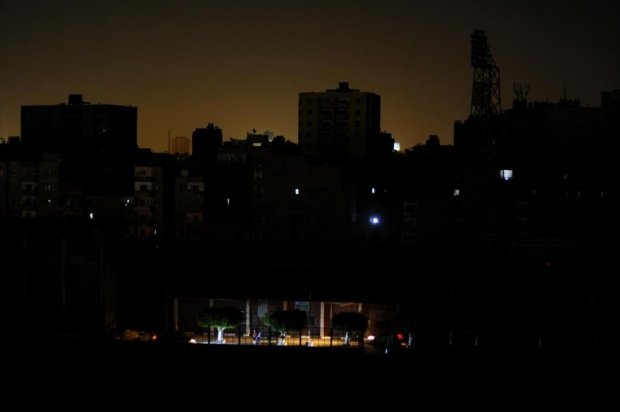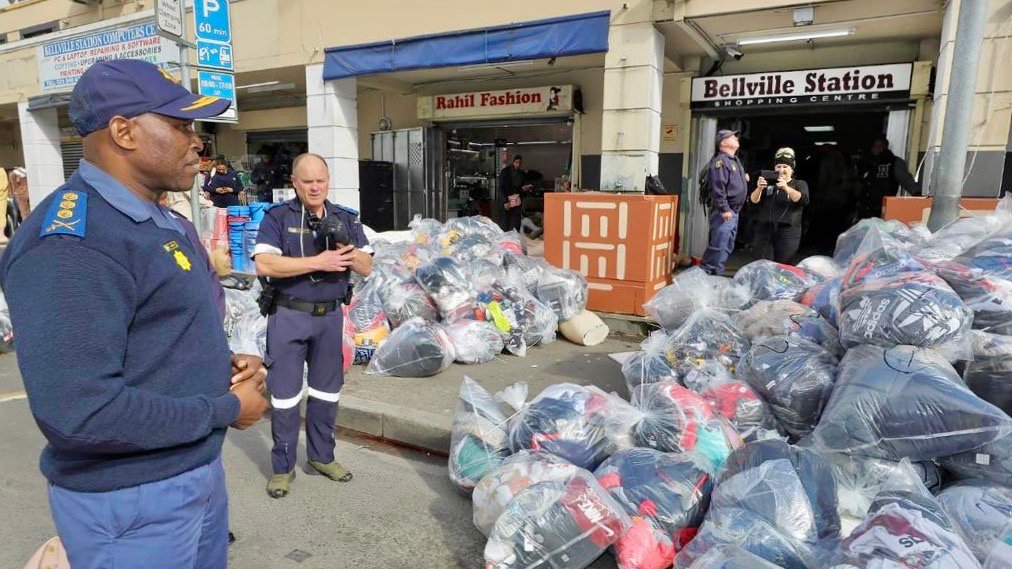General News
Stage 3 And Stage 4 Load Shedding For City Of Cape Town Customers

Capetonians need to make sure to take out the candles and torches as they will also feel the impact of Eskom’s Stage 4 load shedding today.
The power utility said initially announced Stage 2 load shedding for the rest of the week, but later on said due to additional breakdowns of a unit at Medupi and two units at Duvha Power Station – together with the high winter demand – that it would move to Stage 4 today.
“Eskom regrets to inform the public that Stage 4 load shedding will be implemented from 14:00 this afternoon until 22:00 tonight,” a statement said on Wednesday.
“This is in order to ration the remaining emergency generation reserves, which have been depleted. These emergency reserves are required to respond to further emergencies in order to maintain the stability of the national grid. Thereafter Stage 2 load shedding will be implemented as previously communicated.“
Eskom said breakdowns currently total 15 087MW of capacity, while planned maintenance is 1 273MW of capacity.
The City of Cape Town then, after checking its generation capacity, announced that its customers will be on Stage 3 until 5pm, and then move to Stage 4 thereafter.
Eskom has announced load-shedding Stage 4 will be active from 14:00 – 22:00 today. It will then continue with Stage 2.
City-customers will have Stage 3 load-shedding between 14:00 and 17:00. From 17:00 to 22:00, City-customers will have Stage 4 load-shedding.#CTInfo pic.twitter.com/DImh3wxYN9
— City of Cape Town (@CityofCT) June 9, 2021
The City is able to generate additional capacity thanks to the help of the Steenbras Pumped Storage Plant.
Mayco member for energy and climate change Phindile Maxiti said the City has always built into its planning some additional reserve capacity that it generates through its Steenbras Hydro Pump Station to assist its customers during load shedding if required and if possible.
Maxiti said that this was especially necessary “during the daytime, when there is a higher impact on residents and businesses”.
“Then at night, the City recovers capacity to ensure that it can assist residents and businesses again during the higher economic impact daytime hours.”
Maxiti added: “This means sometimes City-supplied customers are the only ones in South Africa that do not have load shedding or that are on a lower level of load shedding than other metros or Eskom customers.”
Source: IOLnews
General News
Cape Town Police Seize Counterfeit Goods Worth R5.1 Million in Bellville Raid

Police in Cape Town have received praise for their recent efforts to combat the illegal trade of counterfeit goods, resulting in the recovery of over R5 million worth of fake merchandise.
The successful operation, which took place in Bellville on Thursday afternoon, saw a collaborative effort from various law enforcement agencies.
Lieutenant Colonel Malcolm Pojie, the provincial police spokesperson, stated that the operation involved members of the South African Police Service (SAPS), Customs, Home Affairs, and brand protectors from various popular products. The coordinated effort targeted a shopping complex near the Bellville taxi rank, where previous similar operations had been conducted.
Despite finding most stores abandoned upon arrival, SAPS members pressed forward with the operation. Three Somalian men in their mid-thirties were apprehended, and counterfeit goods valued at approximately R5.1 million were seized during the operation.
One of the suspects was discovered in possession of a range of crucial documents inside a shop posing as a copy center.
These documents included passports, certificates such as birth and asylum papers, as well as vehicle licenses and a money counting machine.
The arrested individuals are facing charges related to the possession of counterfeit goods and fraud, with further charges pending as the investigation unfolds. They are scheduled to appear in the Bellville Magistrate’s Court.
Lieutenant General Thembisile Patekile, the Western Cape police commissioner, condemned the trade of counterfeit goods as economic sabotage and commended the team for their successful operation. He also issued a stern warning to building owners and landlords who turn a blind eye to illegal activities on their premises.
The seizure of over R5 million in counterfeit goods marks a significant victory in the ongoing battle against illicit trade, demonstrating law enforcement’s commitment to protecting consumers and the economy from fraudulent activities.
General News
Limpopo Police Launch Investigation into Shocking Murder of 63-Year-Old Man

In a shocking incident that has left the community of Thohoyandou in Limpopo in disbelief, a 63-year-old man was brutally murdered in his own home.
The victim, whose identity is yet to be disclosed, was fatally shot while sleeping in his house in Tshitereke Thondoni.
The incident took place in the early hours of Thursday, as confirmed by Limpopo provincial police spokesperson, Colonel Malesela Ledwaba. According to Ledwaba, an unknown assailant intruded into the pensioner’s house, firing several shots at him before fleeing the scene. Tragically, the victim sustained multiple gunshot wounds all over his body.
A woman who was present in the same room with the pensioner miraculously survived the attack without any injuries.
She promptly contacted the police, who, upon arrival along with emergency personnel, declared the elderly man dead at the scene. The identity of the victim will be revealed in due course, according to Ledwaba.
Limpopo’s acting provincial commissioner of police, Major General Jan Scheepers, condemned the brutal attack, describing the victim as “defenceless.” He has instructed a dedicated team of investigators to track down the suspects and ensure they face the full force of the law.
Scheepers emphasized, “These ruthless killers who target the defenceless should be hunted and captured to face the full might of the law.”
Authorities are urging anyone with information that could lead to the arrest of the suspects to come forward. They can contact Crime Stop on 086-001-0111, their nearest police station, or use the My SAPS App. Police investigations into the incident are ongoing.
This tragic event adds to a series of distressing incidents in Limpopo, including cases of elderly individuals being targeted and victimized, highlighting the need for increased vigilance and community safety measures.
General News
South African Lawyers Expand Lawsuit to Hold US and UK Responsible

General News
South African Communist Party Urges US to Lift Decades-Long Sanctions on Cuba

General News
Upcoming Burden: NSSF Contribution Rates to Increase Next Month

As the first year of implementing the National Social Security Fund (NSSF) Act, 2013, in Kenya draws to a close this month, there is a palpable sense of confusion within the country’s employment sector regarding expected changes in pension contributions.
The NSSF Act, which began implementation in February last year, marked a significant shift from a flat mandatory pension contribution of Sh200 per employee to a graduated plan that is set to eventually reach six percent of employees’ salaries.
The latest Economic Survey by the Kenya National Bureau of Statistics (KNBS) last year revealed that the national average monthly earnings per employee in 2022 stood at Sh72,130. This crucial figure has implications for mandatory pension contributions, particularly for those earning above a certain threshold.
Currently, employees earning a monthly salary of Sh6,000 have been contributing Sh360, while those earning Sh18,000 and above contribute Sh1,080 to the mandatory pension fund, with their employers matching these contributions. The confusion arises from discrepancies between the NSSF Act, 2013, and communications made by NSSF management last year.
Former NSSF CEO David Mwangangi, in a communication to employers, stated that after the first year, the base earnings limit and subsequent deductions would be determined by the Labour, Social Security, and Services Cabinet Secretary, creating apparent contradictions with the law.
The NSSF Act, 2013, outlines a clear plan for the first five years of implementation. However, a communication by NSSF management last year seemed to deviate from the stipulations in the law, causing uncertainty in the employment sector.
According to the Act, the lower earnings limit and upper earnings limit for the first four years after the commencement date should be in accordance with a specified table. After the fourth year, the lower earnings limit is expected to be the average statutory minimum monthly basic wage, and the upper earnings limit should be four times the national average earnings.
Despite the clear directives in the law, confusion arises from last year’s communication, which suggested deviations from the prescribed limits. It remains unclear whether the lower earnings limit will be based on the 2013 figures or calculated in present terms.
Efforts to seek clarification from NSSF CEO David Koross and the Federation of Kenya Employers (FKE) Executive Director Jacqueline Mugo were unsuccessful at the time of writing this article.
Under the new law, mandatory pension contributions are categorized into two tiers: tier one, which factors pensionable earnings up to the lower earnings limit, and tier two, which considers pensionable earnings between the lower and upper earnings limits.
President William Ruto has expressed a keen interest in growing NSSF contributions since his election in August 2022, with a goal to reach Sh1 trillion by 2027.
The confusion surrounding the NSSF contributions underscores the need for clear communication and guidance as the country navigates through the complexities of pension reforms.























![Moonchild Sanelly Flaunts Her S3xxy Tattooed B00tty In A See-Through Stockings Leaves Men "H0rny" [Video]](https://zulunews.co.za/wp-content/uploads/2021/02/Moonchild-80x80.jpg)
